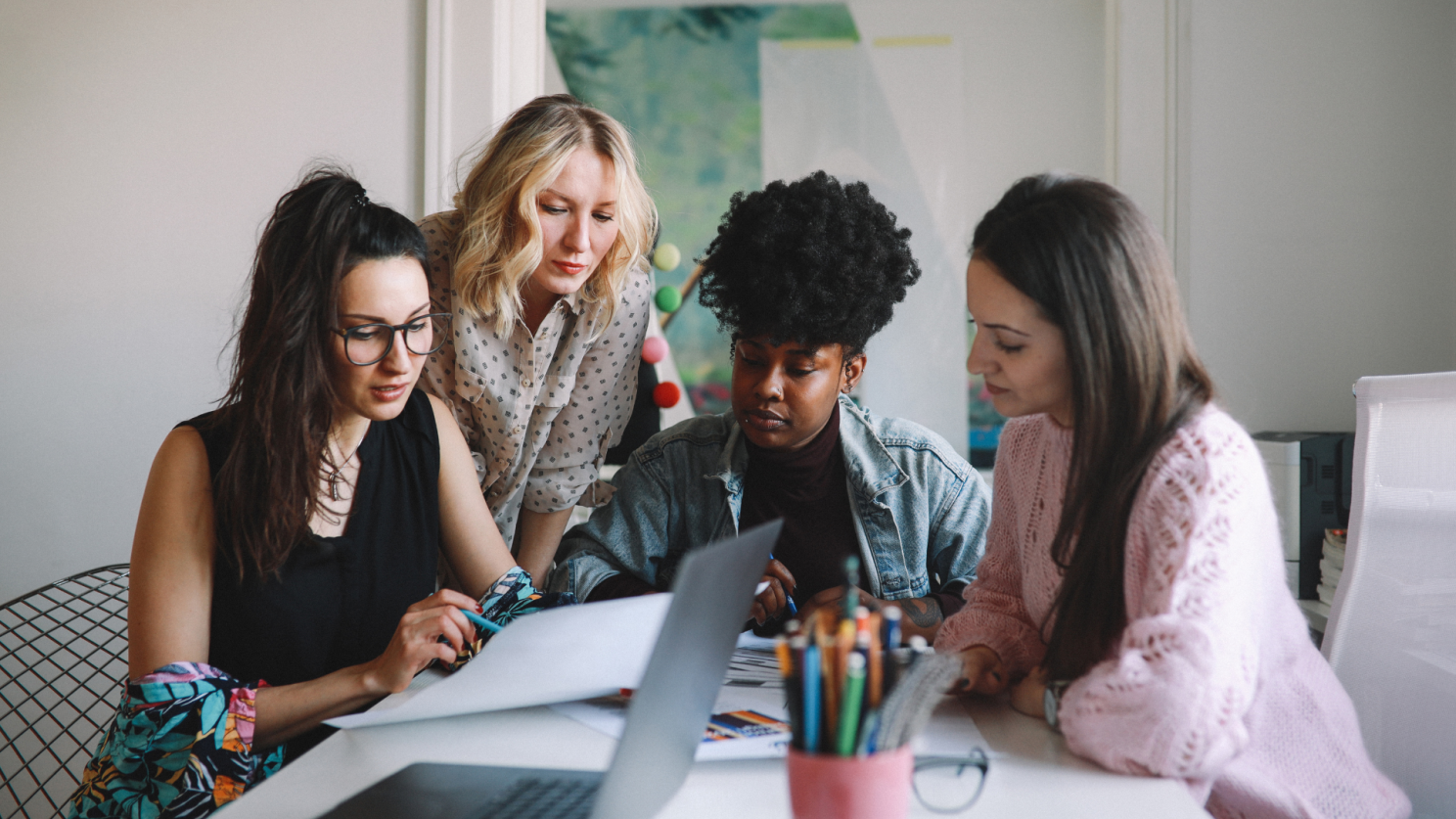I Am Not Your Competition: Strength in Sisterhood
The Reality of Female Workspaces
March marks International Women’s Month—a time to celebrate, reflect, and take meaningful action. It is a moment to honour the contributions of women, past and present, while also recognising the work that remains to build a more equitable and inclusive future. This month, I have been reflecting deeply on the power of women uplifting one another and the environments that either nurture or hinder this solidarity.
Throughout my career, I have worked in female-dominated spaces. Some have been incredibly empowering, like my time at an organisation following my maternity leave. My team there was composed of women from diverse backgrounds, races, and ages, yet we cultivated a truly inclusive and supportive environment. We championed each other’s successes, shared knowledge openly, and created a space where every voice mattered.
Conversely, I have also worked in organisations where women were pitted against one another—where gossip, backstabbing, favouritism, and exclusion created a culture of competition rather than collaboration. In those spaces, survival often took precedence over growth, and the weight of that toxicity was palpable. I can tell you with certainty that I flourished in one of those settings and that my mental health suffered in the other. I’ll leave you to guess which was which.
Why Women Must Champion Each Other in the Workplace
At the British Promotional Merchandise Association (BPMA) International Women’s Day event last week, during my keynote speech, I underscored the importance of women uplifting each other. We must reject the outdated belief that success is finite and instead recognise that when we support one another, we all rise. Here’s why this matters:
Success is Amplified When Shared – Celebrating each other’s wins normalises success and opens doors for more women to rise. Lifting each other up sets a new standard for inclusion and leadership. By recognising that one woman’s achievement is not a threat but an inspiration, we create an environment where more women feel empowered to step forward, take up space, and pursue leadership roles.
A Culture of Collaboration Over Competition – Systemic barriers create an illusion of scarcity, making women feel they must compete for limited opportunities. Choosing partnership over rivalry strengthens teams and makes success accessible to all. When women work together, they challenge workplace biases and advocate for structural changes that ensure fair opportunities for all rather than fighting for the few seats at the table.
Building Stronger Professional Networks – Supporting each other creates lasting networks that provide mentorship, sponsorship, and access to opportunities, ensuring that talent is recognised and rewarded equitably. Women who invest in professional relationships gain a wider network of allies who can recommend, mentor, and advocate for them in spaces where they may not yet have influence.
Psychological Safety Leads to Innovation – A workplace where women feel valued fosters creativity, confidence, and sustainability. Reduced stress and burnout enable women to operate at their highest potential. When women support one another, they create spaces where diverse perspectives are not only welcomed but encouraged, leading to more innovative solutions and better decision-making at every level.
Setting the Tone for Future Generations – How we treat each other now shapes the experiences of those who follow. Modelling encouragement and support creates an empowering culture for younger women entering the workforce. If we demonstrate that success is built on collective strength rather than individual competition, we inspire future leaders to build workplaces that are truly equitable, inclusive, and thriving.
How Organisations Can Facilitate a Supportive Culture
Implement Mentorship and sponsorship Programmes—Ensure women at all levels have access to guidance and advocacy with an intersectional approach that supports Black women and women of colour equitably. Representation matters, and mentorship should extend beyond traditional models to ensure that marginalised voices are heard and supported in their career progression.
Address Workplace Biases and Systemic Barriers – Critically assess policies, promotion criteria, and leadership pathways. Opportunities should not be scarce, and diverse voices must be valued. Organisations must also acknowledge the unique challenges faced by women from different backgrounds, such as bias in hiring and pay gaps, and take proactive steps to create a truly level playing field.
Recognise and Celebrate Women’s Achievements – Embed recognition into organisational culture year-round, ensuring visibility for women from all backgrounds, not just during International Women’s Month. Acknowledging and celebrating the contributions of women—especially those from underrepresented groups—helps to create a culture where all women feel valued and seen.
Final Thoughts: My Commitment to Women’s Empowerment
Strong, supportive women have always surrounded me. Growing up with sisters, eight aunties (compared to just three uncles), and many female cousins, I saw first-hand the power of women lifting each other up. The bonds of sisterhood shaped my values and reinforced the importance of community and mutual support.
This belief led me to establish the Agape Initiative in 2020—a space for women of faith to gather, share, and support each other’s mental well-being. COVID-19 forced us to pivot online, but our need for connection remained as strong as ever.
Beyond family and faith, my friendships with women, my role as a mother to a daughter, and my professional experiences have solidified my dedication to championing women. I actively support women-led businesses, collaborate with female suppliers, and connect women to opportunities because our network is our net worth.
This is not about self-congratulation—I know I don’t always get it right. What matters is that I remain intentional in this mission, particularly in advocating for Black women and women of colour, who often face additional barriers.
I am also deeply grateful for The Sisterhood of Tessy's Brunches, a powerful example of what happens when women come together with genuine support and purpose. These spaces remind me of our collective strength, the power of connection, and the limitless potential we unlock when we invest in one another.
So now, I ask you—are you committed to this too? Imagine what we could achieve if every woman made a conscious effort to uplift another. Picture the businesses, movements, and systemic changes we could drive together.
Let’s not wait for permission or an invitation. Let’s commit to uplifting each other—not just in words, but in action.
Who’s with me?
Join the Conversation
I hope Mabinty Esho's DEIB Digest inspires you to embrace diversity and become an advocate for equity, inclusion, and belonging. If you’ve enjoyed reading this article and want to hear more of my thoughts, reflections, and insights, please like, comment, and subscribe!
Thank you for being a part of this journey towards a more inclusive and equitable world. Together, we can create a world where everyone feels seen, heard, and valued.
Until next time, stay curious, stay kind, and keep shining!


